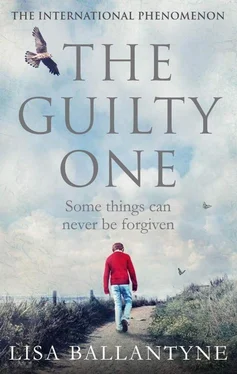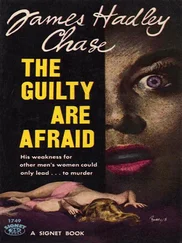He went into the living room, where the last newspaper she had read was lying open on the couch. It had been a Tuesday then, when she had last been in the house. He could picture her with her feet up reading the Guardian. He touched the paper and felt a chill. He felt both close to her and distant, as if she was a reflection he could see in a window or a lake.
Her old piano was open by the window. Daniel pulled out the stool and sat down, listening to the wood strain under his weight. He pumped one of the pedals gently with his foot, letting his fingers fall heavy on the keys, the notes discordant under his touch. He remembered nights as a child when he would creep down and sit on the stairs, the toes of one foot warming the other as he listened to her play. She played slow, sad, classical pieces that he did not recognise at the time but which he had learned to name as he got older: Rachmaninov, Elgar, Beethoven, Ravel, Shostakovich. The drunker she became, the louder she would play and the more notes she would miss.
He remembered standing in the cold of the hall, watching her through the half-open living-room door. She was heavy on the keys, so that the piano itself seemed to protest beneath her. Her calloused, bare feet pumped the pedals as strands of her grey curls fell over her face.
Daniel smiled, sounding single notes on the piano. He could not play. She had tried to teach him once or twice. His forefinger found the notes and then listened to the sound of them: cold, shuddering, lonely. He closed his eyes, remembering; the room was still thick and heavy with the scent of dog. What had happened to the dog when Minnie died, he wondered?
Every year he had known her, on 8 August she drank herself into a stupor listening to one record over and over again. It was a record she wouldn’t let him touch. She kept it tight in its sleeve except for that one day of the year when she would let it spin and allow the fine needle of the stylus to find its fingerprint threads. She would sit in the half-dark, the living room lit only by the fire, and listen to Ravel’s Piano Concerto in G Major. Daniel had been in university before he knew the name of the track, although he had memorised every note well before then.
Once, she had let him sit with her. He had been thirteen or fourteen and still trying to understand her. She had made him sit quietly, turned from her and facing the record that scratched its way into the music as she waited, her chin bobbing up and down slightly in expectation of the notes and the pathos that would find her.
When the music started, he had turned to watch her face; surprised at the effect the music had on her. It reminded him of his mother injecting heroin. The same rapture, the same devout attention, the same bewilderment, although she would seek it out again and again.
At first Minnie would seem to follow the notes with her eyes, her breath deepening and her chest rising. Her eyes would water, and from across the room Daniel would see the sheen of them. She was like a painting: a Rembrandt – lucent, rustic, there. Her fingers on the armchair would mime the notes, although he had never heard her play this piece. She would listen but never, not even once, did she play it.
And then the discordant notes, the A# and B. As they continued to sound and sound again, a rare tear would form and fall, flashing across her cheek. Dissonant but somehow right: sounding out what she felt.
She seemed to seek out the discord, as a finger finds a wound.
How many nights in August had he woken to the sound of piano music and crept downstairs to realise that she was weeping.The sobs were robbed from her. It was as if she was being hit in the stomach, again and again. Daniel remembered pulling himself into a ball as he listened, frightened for her, not understanding what was wrong, feeling unable to comfort her. He had been frightened to go into the room and face her like that. Already he had come to see her as strong, impervious – braver, harder than his own mother. As a child he could not fathom her sorrow. He never fully understood why. He had come to love her strong calves and muscular hands and loud, strong laugh. He couldn’t bear to see her broken, at a loss.
But in the morning, to be sure, she would be fine again. Two aspirin and an omelette after the chickens were fed; and it was over for another year. The next summer it would happen again. Her pain never seemed to lessen. Each year it would return with the same ferocity, like a perennial frost.
Daniel thought about it. Minnie must have died on 9 or 10 August. Was it the grief that had finally killed her?
He looked around the room. He was surprised to feel the weight of the house. The memories that it held leaned on him and brushed against him. He remembered both her tears and her laughter: the easy lilt of it that had once charmed him. Then he remembered again what she had done to him. Gone, but still he could not forgive her. Understanding her was something, but it was not enough.
Daniel closed the lid of the piano. He looked at Minnie’s chair, remembering the sight of her, sat with her feet up, telling stories with the light of the fire in her eyes and her cheeks pink with mirth. Beside the chair was an open box file. Daniel picked it up and sat down in Minnie’s chair to examine the contents. Newspaper clippings from the Brampton News and the Newcastle Evening Times fluttered into his lap like anxious moths.
A car crash involving a woman and two children resulted in the death of six-year-old Delia Flynn, from Brampton in Cumbria. The other child passenger sustained minor injuries but was released from hospital on Thursday evening. Delia was taken to Carlisle General Hospital where she died two days later from serious internal injuries.
The mother of the child, who was driving the car and who escaped with minor injuries, refused to comment.
There were two other articles on the car accident, and then another piece drew Daniel’s attention. It was partially torn and had been ripped from near the fold of the newspaper.
F
ARMER
F
OUND
D
EAD IN
P
OSSIBLE
S
UICIDE
A local man and Brampton farmer was found dead on Tuesday night following a shooting incident. An investigation is under way, but police are not treating the death as suspicious.
Daniel sat in silence in the cold living room. As a child he had tried to ask her about her family, but she would always change the subject. The rest of the box file was filled with paintings that Delia had done: finger paintings, leaf rubbings and mosaics of lentils and macaroni. Not knowing why, Daniel folded up the two newspaper clippings and slipped them into his back pocket.
It was cold, and he stamped his feet as he walked around. He picked up the telephone. The line was now dead. The answer-phone was flashing and he played the messages.
There was a breathy female voice that whispered, ‘Minnie, it’s Agnes. I heard you’re not able to come on Sunday. I just wanted to say I’m happy to take the stall. I hope you’re not feeling too bad. Talk t’you later, I think… ’
The machine moved to the next message:
‘Mrs Flynn, this is Dr Hargreaves. I hope you can call me back. I have the results from the consultant. You missed your last appointment. They certainly warrant discussion and I hope that you are able to reschedule. Thank you.’
End of messages, the machine proclaimed.
There were letters piled on the chair next to the telephone in the hall. Daniel flicked through them. There were red letters from the electricity board and the telephone company, letters from the RSPCA and PDSA, copies of Farmers Weekly. Daniel swept them to the floor and sat down, a hand covering his mouth.
Читать дальше












